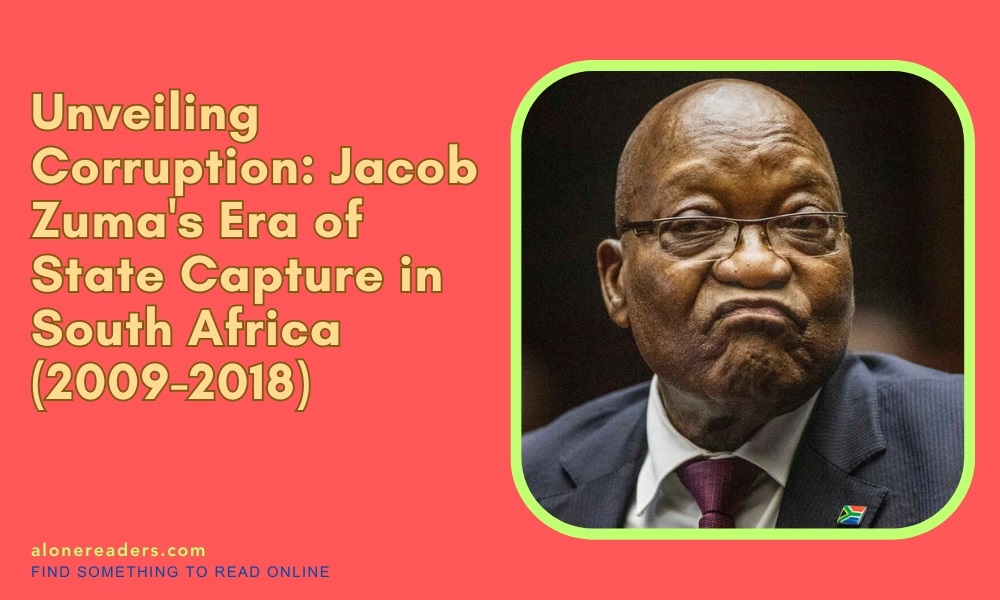
Jacob Zuma’s presidency in South Africa, spanning from 2009 to 2018, was marred by widespread allegations and evidence of corruption, which have broadly been characterized as "state capture." This term refers to systemic high-level corruption that involves the private sector's influence over the country's decision-making processes to the detriment of the public good. The Zuma years were a period during which corruption became entrenched in the highest levels of government and public enterprises, affecting the entire political and economic landscape of South Africa.
The concept of state capture in South Africa gained significant attention with the release of the "State of Capture" report by former Public Protector Thuli Madonsela in October 2016. The report detailed extensive corruption allegations, particularly involving the Gupta family, a wealthy business family with close ties to President Zuma. The Guptas were accused of influencing the appointment of cabinet ministers and directors of state-owned enterprises, securing lucrative contracts through irregular means, and misappropriating state funds.
During Zuma’s tenure, several key state-owned entities were compromised. Eskom, the national electricity provider, and Transnet, the state-owned freight transport and logistics company, were among those heavily implicated. Allegations included the awarding of overpriced contracts to Gupta-linked companies, which not only siphoned billions from the state's coffers but also led to operational inefficiencies and economic setbacks. These practices extended to the national airline, South African Airways, and the South African Broadcasting Corporation, highlighting a pervasive pattern of malfeasance.
The economic impact of state capture has been profound. It has been estimated that the total cost to the country could run into billions of dollars, significantly hampering economic growth and exacerbating inequality. The corruption scandals contributed to the downgrade of South Africa’s credit rating, which increased the cost of borrowing and deterred investment. This financial strain came at a time when South Africa was already grappling with high unemployment rates and widespread poverty.
The social implications are equally significant. Corruption at the highest levels of government erodes public trust in institutions and undermines the rule of law. For ordinary South Africans, the persistence of corruption signifies not only an economic loss but also a diminution in the quality of public services, from healthcare and education to safety and infrastructure development.
Zuma's connection to the Gupta family and the alleged corrupt activities were central to his presidency's controversies. Despite numerous allegations, Zuma has denied all accusations of wrongdoing, asserting that his relationship with the Guptas was strictly professional and that he never allowed it to influence his official duties. However, his presidency faced significant opposition from within his own party, the African National Congress (ANC), as well as public protests demanding his resignation.
The political fallout from the state capture scandal was significant. It played a key role in the ANC’s decision to recall Jacob Zuma in February 2018, leading to his resignation. His successor, Cyril Ramaphosa, has pledged to root out corruption and restore public confidence in the government. This commitment has led to ongoing investigations and the establishment of the Judicial Commission of Inquiry into Allegations of State Capture, chaired by Deputy Chief Justice Raymond Zondo. The commission’s ongoing inquiries aim to uncover the extent of corruption during Zuma’s presidency and ensure accountability for those involved.
Despite these efforts, the legacy of Zuma’s state capture era continues to affect South Africa. The country faces long-term challenges in rebuilding its institutions and restoring ethical governance. The extent of corruption uncovered has also led to a broader societal reckoning with issues of governance, transparency, and accountability.
In conclusion, the state capture scandal during Jacob Zuma's presidency highlights a critical period in South Africa's recent history, marked by deep-rooted corruption that has had lasting effects on the country’s political, economic, and social fabric. As South Africa continues to confront these challenges, the lessons learned from this period remain crucial in guiding future reforms and ensuring a more transparent and accountable government.